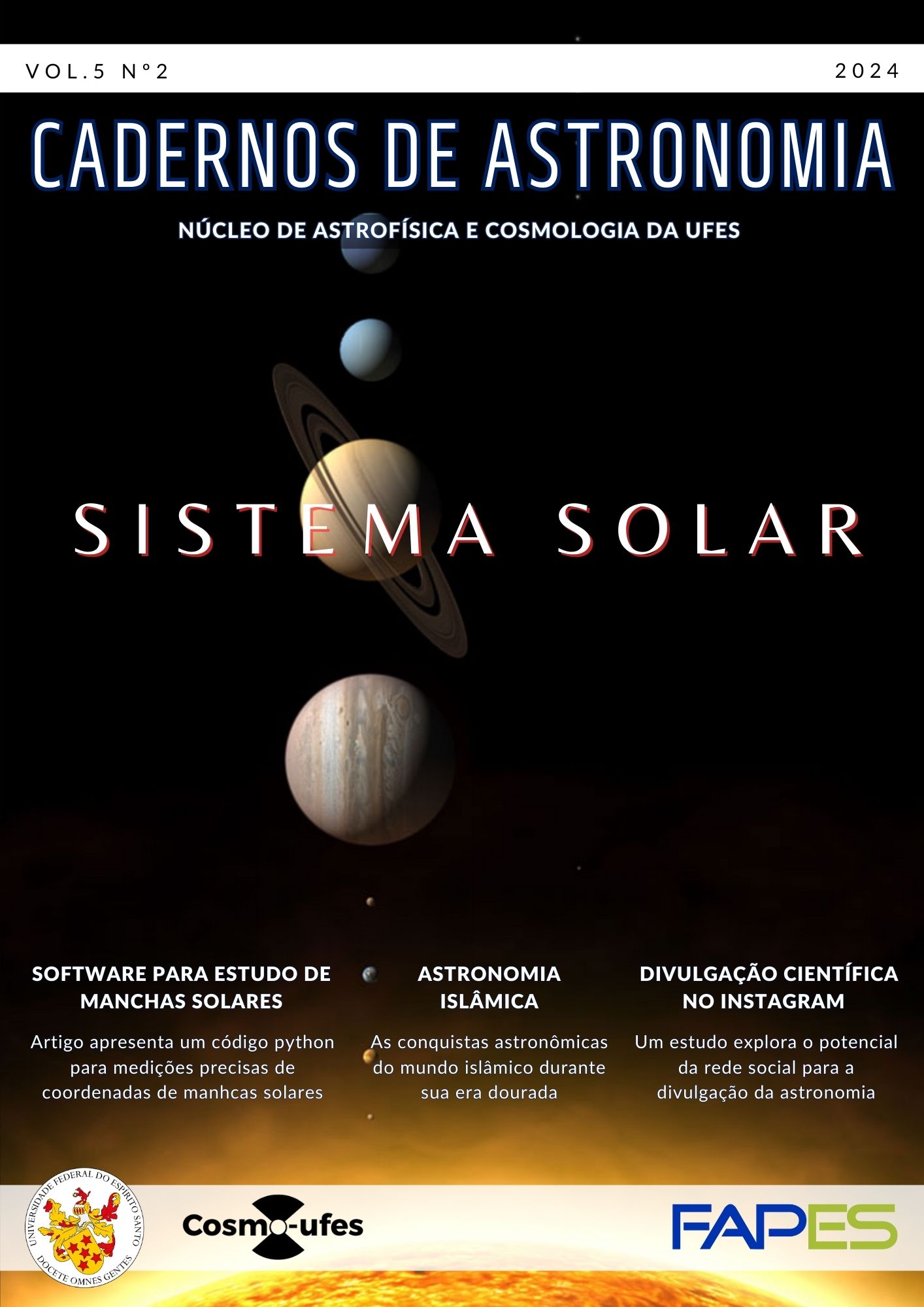Astronomy in the Islamic world: a European perspective
DOI:
https://doi.org/10.47456/Cad.Astro.v5n2.45445Keywords:
history of science, astronomy, Islamic worldAbstract
Mathematical and astronomical achievements of the Islamic World during its golden era are briefly exposed. The article is based on the invited talk delivered remotely at the ICRANET-Isfahan Astronomical meeting, November 2-5, 2021, which, in turn, reproduces major parts of one of the chapters of my book, Our Celestial Clockwork, published recently (2021) by the World Scientific
Downloads
References
R. Kerner, Our Celestial Clockwork: From Ancient Origins to Modern Astronomy of the Solar System (World Scientific, 2019). DOI: https://doi.org/10.1142/11674
G. Saliba, Islamic Science and the Making of the European Renaissance (The MIT Press, 2007). DOI: https://doi.org/10.7551/mitpress/3981.001.0001
J. Berggren, Episodes in the Mathematics of Medieval Islam (Springer New York, 2016). DOI: https://doi.org/10.1007/978-1-4939-3780-6
V. J. Katz, A History of Mathematics: An Introduction, Katz Series (Addison-Wesley, 2009), 2a ed.
G. Saliba, A History of Arabic Astronomy: Planetary Theories During the Golden Age of Islam (NYU Press, 1994).
S. P. Blake, Astronomy and Astrology in the Islamic World (Edinburgh University Press, 2016). DOI: https://doi.org/10.1515/9780748649112
B. Lewis, What Went Wrong?: Western Impact and Middle Eastern Response (Oxford University Press, 2002). DOI: https://doi.org/10.1093/oso/9780195144208.001.0001
Downloads
Published
How to Cite
Issue
Section
License
Copyright (c) 2024 Richard Kerner

This work is licensed under a Creative Commons Attribution 4.0 International License.






